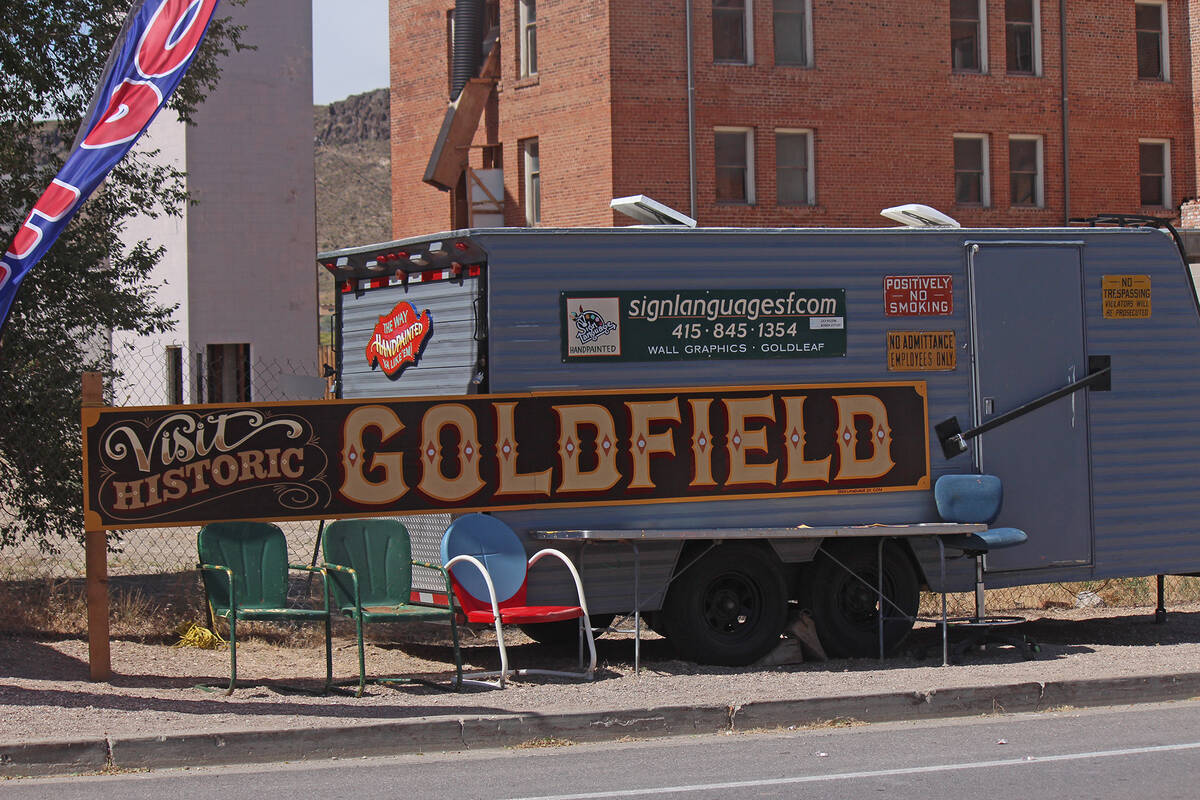EDITORIAL: Goliath seeks to pound on David in rural Nevada

Sidewinders outnumber people in Esmeralda County, home to about 950 residents and one of the most sparsely populated jurisdictions in the lower 48. Goldfield, the county seat, had its heyday in the early 1900s, at one time boasting 20,000 residents. Today, it’s not unusual to travel U.S. Highway 95 through the middle of town without spotting another human being.
Those who make their homes in many of the small desert towns that dot the Nevada outback are resilient and hardy souls who are more than happy to do without the conveniences that city dwellers take for granted. Yet even as the internet opens the world to remote locales, connecting people from around the globe, service remains spotty in many secluded communities.
Enter Radio Goldfield, 89.1 on the FM dial. Established in 2006 as a pirate station, it acquired a broadcast license from the FCC in 2011 and went legit. Today, station officials produce more than a dozen shows that offer music and local news across Esmeralda and Nye counties. The station’s mission statement explains that it “strives to keep our community vibrant by providing quality programming and providing community access to the airwaves for the purpose of sharing music, experiences, news and information.”
In December, however, the U.S. Forest Service published a proposed rule that would increase by $1,400 the annual fee for “communication use authorization” on lands it manages. The agency seeks to use the money to reduce a backlog of such applications and insists the higher costs will have minimal impact. But “some small governmental jurisdictions and small businesses that will incur greater impacts,” a news release allows.
Radio Goldfield is one such entity.
The station survives on donations. Recently, the Forest Service issued a permit so Radio Goldfield could build a transmitter on Shoshone Mountain in order to broadcast to Round Mountain and Smokey Valley, north of Tonopah. The equipment would be on Forest Service land, meaning the higher fees would apply. That threatens the financial viability of the plan.
“Let’s call this ‘fee’ what it is,” Radio Goldfield president Chris Wagenseller wrote in comments regarding the proposed new rule, “an ill-conceived prohibitively expensive regressive tax on small isolated rural communities who rely on the communication networks operating on these remote and limited communication sites.”
The fee hike is especially nonsensical given the Biden administration seeks to direct billions in infrastructure funding to broadband projects intended to improve internet access in rural America. Why do that on one hand while crippling the expansion of existing rural communication tools on the other?
The Forest Service should tap its existing budget to ease permit backlogs and put this ill-conceived new tax out of its misery.